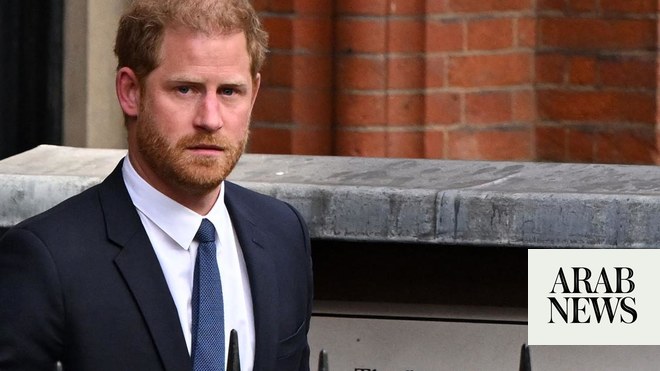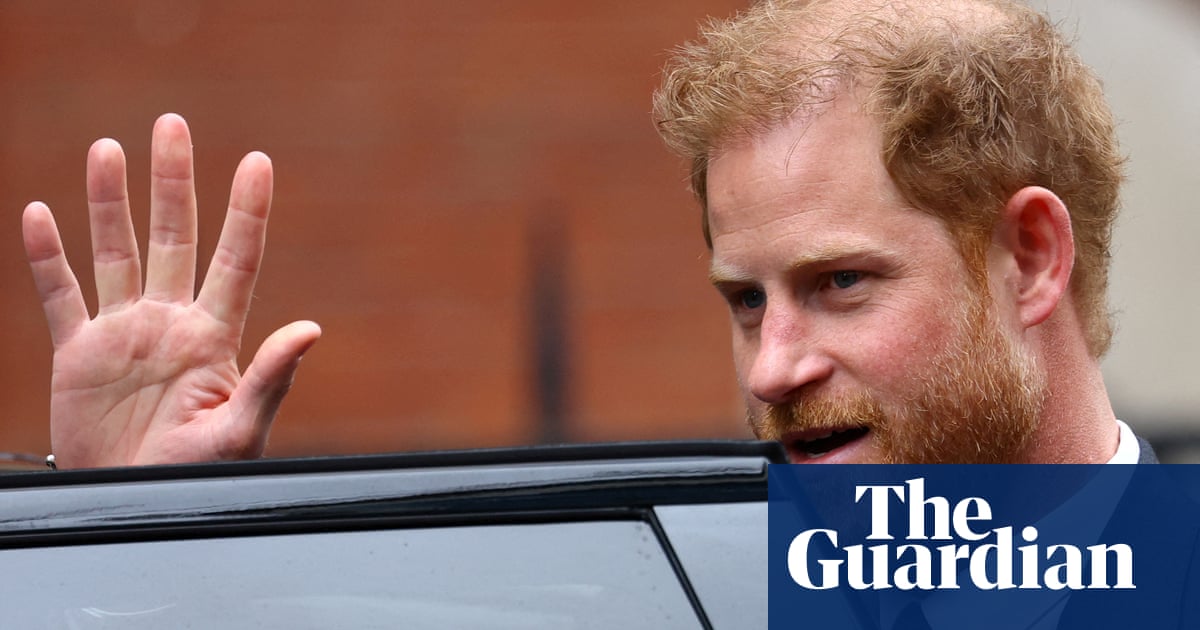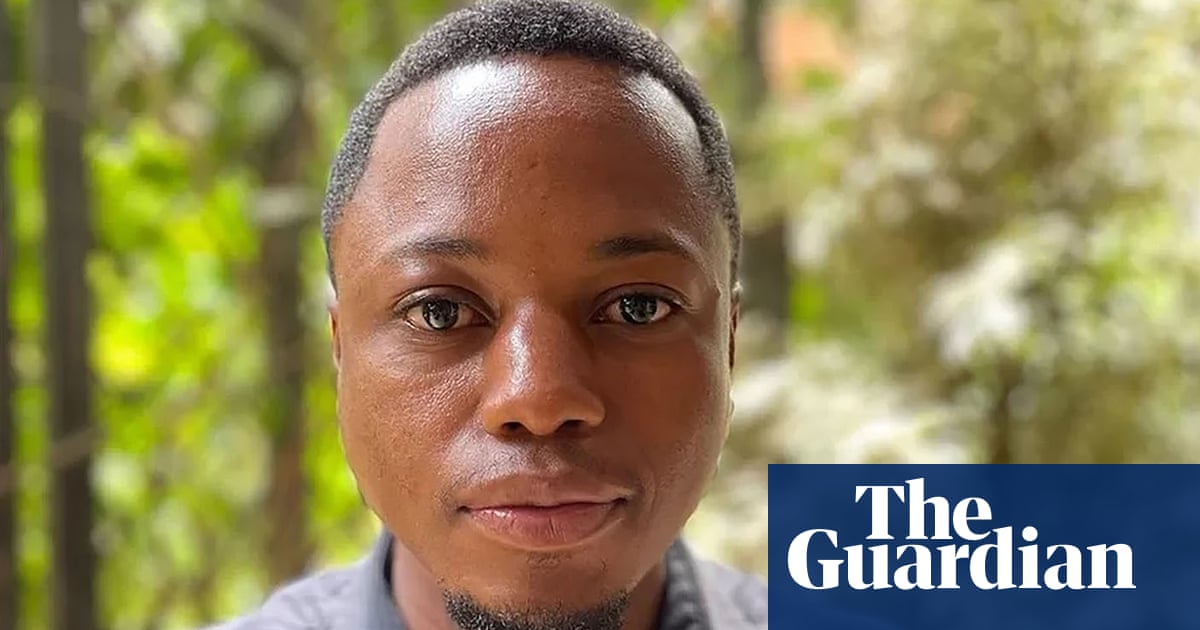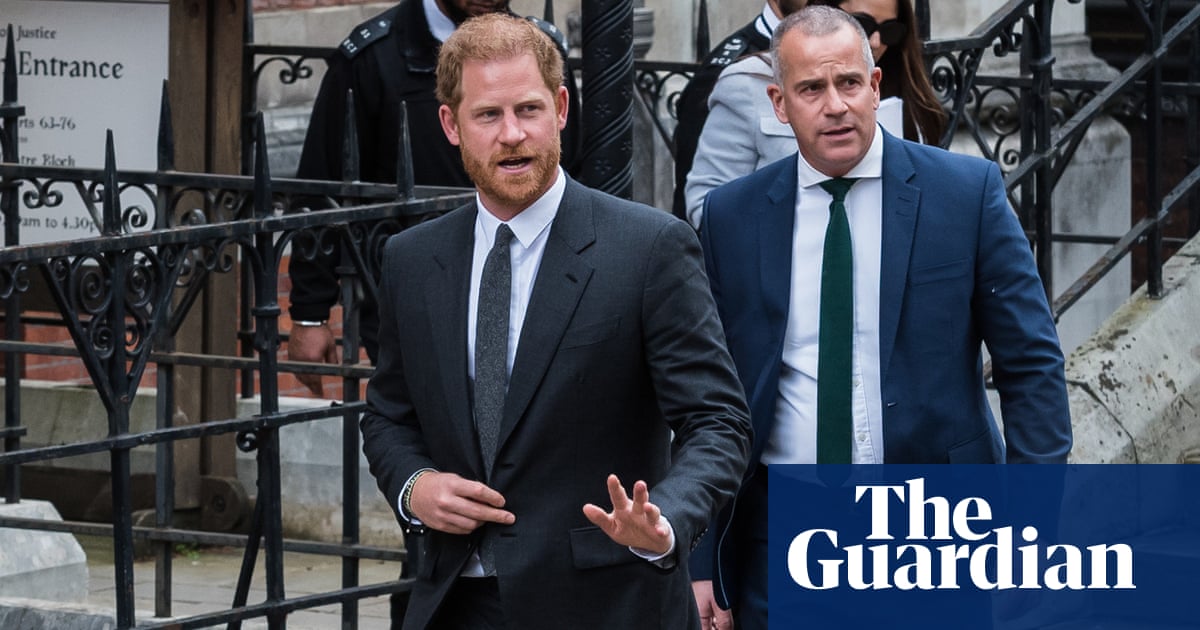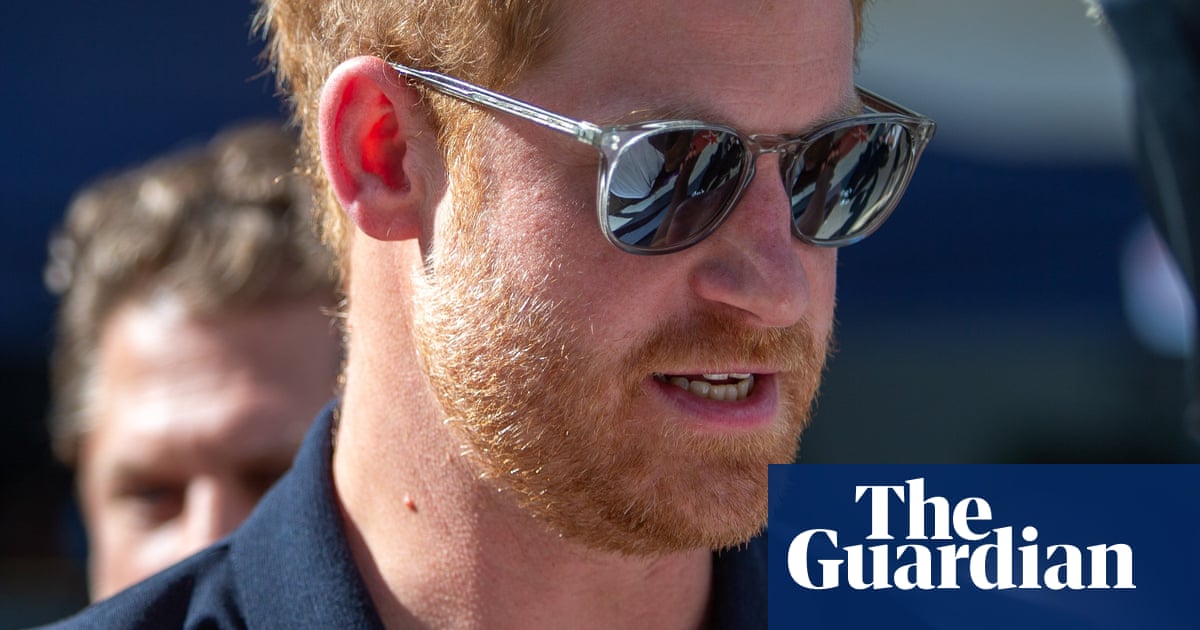
Prince Harry, Elton John and Doreen Lawrence have welcomed a judge’s decision to give them the green light to continue their legal case against the publisher of the Daily Mail, as the company lost an attempt to have it thrown out at the high court.
The three, along with David Furnish, Sadie Frost, Liz Hurley and Simon Hughes, brought legal action against Associated Newspapers Limited (ANL) for alleged unlawful information-gathering.
The news is a significant blow to the publisher, which had – until now – escaped the barrage of lawsuits faced by rival publishers, such as Rupert Murdoch’s News UK, which have spent the past 15 years dealing with claims of illegal activity at their newspapers, often related to phone-hacking or obtaining material illegally.
But, in a setback to the claimants, the court also ruled that their case cannot use leaked copies of documents that were confidentially supplied to the Leveson inquiry by the Daily Mail.
In March, the Daily Mail, which has maintained the claims are “preposterous smears”, asked a judge to rule in its favour without a trial, arguing the legal challenges against it were brought “far too late”.
In Friday’s ruling, Mr Justice Nicklin said ANL had “not been able to deliver a ‘knockout blow’ to the claims of any of these claimants”.
According to a statement issued by lawyers for the seven, the claims include allegations that their homes and cars were bugged, deceptive tactics were used to obtain private medical and financial information, and live phone calls were tapped.
The seven claimants said they were delighted with the decision, which they said “allows our claims over serious criminal activity and gross breaches of privacy by the Mail titles to proceed to trial”. They added that the high court had dismissed Associated Newspapers’ attempts to have the case thrown out “without difficulty”.
In a statement they said: “We bring our claims over the deplorable and illegal activities which took place over many years, including private investigators being hired to place secret listening devices inside our cars and homes, the tapping of our phone calls, corrupt payments to police for inside information, and the illegal accessing of our medical information from hospitals and financial information from banks.”
Nicklin rejected the publishers’ arguments that the whole case had been brought too late and should be dismissed.
The claimants had “a real prospect of demonstrating not only that the unlawful acts themselves were concealed, but also, in many instances, further devices were employed in the published articles to throw the subject ‘off the scent’”, he said. “Several claimants complain that they believed that their confidences were being betrayed by people close to them.”
ANL said it “looked forward” to establishing in court that the group had made “lurid” claims, and welcomed the judge’s decision that unpublished ledgers given to the Leveson inquiry into the practices and ethics of the British press could not be used without governmental permission, calling it a “significant victory”.
It added: “As we have always made unequivocally clear, the lurid claims made by Prince Harry and others of phone-hacking, landline-tapping, burglary and sticky-window microphones are simply preposterous and we look forward to establishing this in court in due course.”
Nicklin said the celebrities would need approval from the government or Sir Brian Leveson, the now-retired judge who headed the inquiry, in order to use the documents.
He said: “The court will, for its part, not permit the use in litigation of documents which have been provided or obtained in breach of a restriction order without the relevant restriction order being varied or revoked ... By so doing, the court is upholding and promoting the rule of law. Ignoring (or treating without consequence) the breach of a restriction order would involve the court in undermining the rule of law.”
Harry made a surprise appearance at the Royal Courts of Justice during the four-day preliminary hearing earlier this year, with John and Lady Lawrence also appearing at the London court.
Adrian Beltrami KC, for ANL, said the individuals could have used “reasonable diligence” to discover if they had a potential claim before October 2016. The lawyer said the legal action had “no real prospects of succeeding” and was “barred” under a legal period of limitation.
The claimants argued they only recently learned they may have been victims of illegal information-gathering by individuals working for the Daily Mail and Mail on Sunday. Their lawyers said they were “thrown off the scent” and not aware of being targeted, having believed “categorical denials” from ANL over any involvement in unlawful activity.
David Sherborne, representing the Duke of Sussex and others, said ANL’s attempt to have the claims ended was as “ambitious as it is unattractive” and that members of the group each had a “compelling case”.
The actor Hugh Grant, who was given permission to proceed with a damages claim against the publisher of the Sun over allegations of unlawful information-gathering in May, said the move to trial in the ANL case was “a significant blow to the Daily Mail and great news for anyone who wants the truth about allegations of illegal press practices to come out”.
Grant, who is a board director of the campaign group Hacked Off, recalled that when he told the Leveson inquiry in 2012 of his suspicions that the Daily Mail had carried out illegal activities, Paul Dacre, the newspaper’s editor at the time, had a hand in drafting a statement which called his remarks “mendacious smears”. “I am pleased that a judge will now decide whether similar allegations made by Prince Harry, Baroness Lawrence, Sir Elton John and others are also mendacious smears or whether the mendacity lies with the other side,” he said.
Prince Harry is also waiting for judgment in his privacy case against the publisher of the Daily Mirror, after becoming the first senior royal in more than 130 years to give evidence from the witness box.




